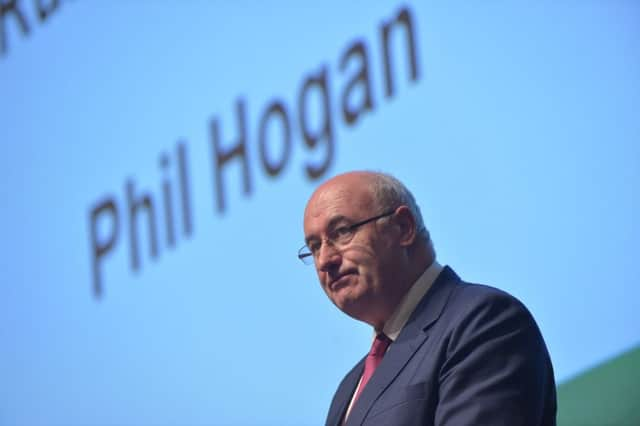Farmers miss out on gains of Irish farm commissioner


With Brexit now less than a year away there is little the European Commission, or indeed COPA as the body representing European farm unions, can do to influence the agricultural debate in the UK. This is part of the disengagement from Brussels, and it will accelerate as we move to Brexit and the 21-month transition period from next March.
Amongst politicians Hogan is a breath of fresh air. He is blunt and in the style of his predecessors like Ray MacSharry and Franz Fischler he is a farmer’s farm commissioner. He understands the industry and over his term has tried to deliver for it. He managed the dairy crisis well in 2015 and has now delivered, with planned legislation, on his commitment to end unfair trading practices along the food chain. How this will affect the UK is an unknown, since we already have the Grocery Code Adjudicator and will be out of the EU by the time the new legislation is in force.
Advertisement
Hide AdAdvertisement
Hide AdIn recent weeks Hogan has been making some controversial comments on Brexit. In a speech in Dublin he suggested Theresa May, in her key statements on Brexit, was making a better case for joining than leaving the EU. He also suggested, based on the EU’s experience of pursuing global trade deals, that the UK would find this a lot harder than it believed. This was blunt, but then back in 2016 it was Hogan that boiled down the debate on the EU referendum to farmers making a choice between the financial certainty of the CAP and a gamble on the future generosity of the UK Treasury. After his Brexit comments in Dublin, he headed for Edinburgh. There, he questioned why the UK wanted to leave the customs union, since remaining in it would, at a stroke, solve key Brexit problems, such as the Irish border, trade relations and food quality differences.
This is not about remaining in the EU. That ship has already sailed, and whether you voted leave or remain the only show in town now is to ensure the government makes a success of Brexit. The customs union option would be to join countries like Norway, Iceland and Switzerland as members of either the European Free Trade Association (EFTA) or the European Economic Area (EEA). This would retain many aspects of the single market, while allowing the UK to be outside the EU. Some of the conditions to make this possible, including free movement of people and paying into the EU budget, were initially red line issues for the government. Over time it has slowly but steadily blurred these and turned them from red to the faintest shade of pink.
There are political reasons for the government insisting it wants no customs union arrangement with the EU-27. Those who back this position should demonstrate the courage of their convictions by delivering sound economic arguments in favour of this, as opposed to the sound bites we get on the subject. This would be a sign of economic maturity, and of a willingness to trust the electorate. Many who voted Leave back in June 2016 did so in expectation that the UK would remain in a customs union with the EU and it is hard to see how key issues can be tackled outside.
The main argument for not remaining part of the customs union we are now in with the EU is that it will allow the UK to make its own trade deals around the world. In doing so it will be offering a market of 60 million consumers against the EU with 500 million. The way around that is to be more generous than the EU over market access, which is a big danger for farmers. That is central to the challenge that lies ahead. It is why Hogan questioned why the UK wants to leave the customs union and the security of Fortress Europe, with numbers of countries, skills and people giving it power the UK may ultimately envy. In that battle, cheap imported food to drive down prices is the biggest threat to farmers.